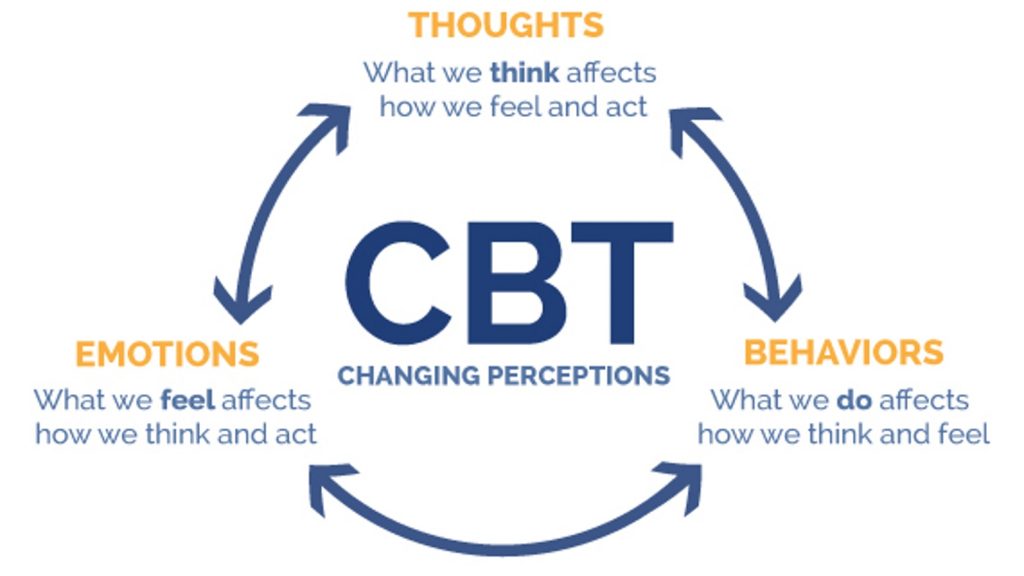Cognitive Behavioral Therapy (CBT): Definition, Types, Techniques.
The stigmatization surrounding mental health treatment in the United States has taken a backseat with the rise of COVID-19 infections. Americans struggling with mental distress are accepting their need for help. There has never been a time in the country’s history when mental illness has been more important and discussed. However, it can be difficult to find the right kind of assistance or treatment. The most important thing to realize is that any treatment an individual seeks out is a form of service being provided to them. Cognitive Behavioral Therapy CBT is a remarkable tool at our disposal and one of the best ways to treat conditions such as anxiety, depression, and substance use disorders. Behavioral therapy focuses on altering undesirable behaviors and focusing on the ways to modify them beneficially. Lifescape recovery is a facility in Los Angeles, CA, that can provide the quality behavioral therapy that so many are in serious need of today. We are going to disclose all of the necessary information that is essential when it comes to finding the quality behavioral therapy in the Los Angeles area that is so deserved.

Cognitive Behavioral Therapy CBT: Definition
Cognitive-behavioral therapy (CBT) is a type of behavioral therapy that helps people learn how to identify and change destructive or disturbing thoughts that might have a negative influence on behavior and emotions. For example, if you’re under much stress at work, you might see situations differently and make choices you wouldn’t ordinarily make. However, according to the CBT approach, these thoughts and behavior patterns can be changed.
CDT focuses on changing the automatic negative thoughts that can contribute to and worsen emotional difficulties, depression, and anxiety. CBT is Considered a “solutions-oriented” form of therapy and rests on the idea that thoughts and perceptions influence behavior.
Types of Cognitive-Behavioral Therapy
CBT includes a range of techniques & approaches that address thoughts, emotions, and behaviors, from structured psychotherapies to self-help materials. There are specific types of therapeutic approaches that involve CBT, including:
- Cognitive therapy centers on identifying and changing inaccurate or distorted thinking patterns, emotional responses, and behaviors.
- Dialectical behavior therapy (DBT) addresses thoughts and behaviors while incorporating strategies such as emotional regulation and mindfulness.
- Multimodal therapy suggests that psychological issues must be treated by addressing seven different but interconnected modalities: behavior, affect, sensation, imagery, cognition, interpersonal factors, and drug/biological considerations.
- Rational emotive behavior therapy (REBT) involves identifying irrational beliefs, actively challenging these beliefs, and finally learning to recognize and change these thought patterns.
While each type of cognitive-behavioral therapy takes a different approach, all work to address the underlying thought patterns that contribute to psychological distress.

Techniques
CBT is about more than identifying thought patterns; it is focused on using a wide range of strategies to help people overcome these thoughts. Techniques may include journaling, role-playing, relaxation techniques, and mental distractions.
Identifying Negative Thoughts
It is important to learn how thoughts, feelings, and situations can contribute to maladaptive behaviors.5 The process can be difficult, especially for people who struggle with introspection. Still, it can ultimately lead to self-discovery and insights that are an essential part of the treatment process.
Practicing New Skills
It is important to start practicing new skills that can then be put in to use in real-world situations. For example, a person with a substance use disorder might start practicing new coping skills and rehearsing ways to avoid or deal with social situations that could potentially trigger a relapse.
Goal-Setting
Goal setting can an important step in recovery from mental illness and helping you make changes to improve your health and life. During CBT, a therapist can help with goal-setting skills by teaching you how to identify your goal, distinguish between short- and long-term goals, set SMART (specific, measurable, attainable, relevant, time-based) goals, and focus on the process as much as the end outcome.
Problem-Solving
Learning problem-solving skills can help you identify and solve problems that arise from life stressors, both big and small, and reduce the negative impact of psychological and physical illness.
Problem-solving in CBT often involves five steps:
- Identifying a problem
- Generating a list of possible solutions
- Evaluating the strengths and weaknesses of each possible solution
- Choosing a solution to implement
- Implementing the solution
Self-Monitoring
Also known as diary work, self-monitoring is an important part of CBT that involves tracking behaviors, symptoms, or experiences over time and sharing them with your therapist. Self-monitoring can help provide your therapist with the information needed to provide the best treatment. For example, for people coping with eating disorders, self-monitoring may involve keeping track of eating habits as well as any thoughts or feelings that went along with consuming that meal or snack.
What can CBT help with?
CBT usually lasts between 5 and 20 weeks, with one session each week. In your first few sessions, you and your therapist will likely talk about how long therapy might last. That being said, it’ll take some time before you see results. If you don’t feel better after a few sessions, you might worry therapy isn’t working. But give it time, and keep doing your homework and practicing your skills between sessions. CBT can help with a range of things, including the following mental health conditions:
- depression
- post-traumatic stress disorder (PTSD)
- anxiety disorders, including panic and phobia
- obsessive-compulsive disorder (OCD)
- schizophrenia
- bipolar disorder
But you can also benefit from CBT if you experience:
- relationship difficulties
- breakup or divorce
- a serious health diagnosis, such as cancer
- grief or loss
- chronic pain
- low self-esteem
- insomnia
- general life stress
How Can Lifescape Recovery in Los Angeles, CA Help?
The process of obtaining the right kind of care can be a long one, but it does not always have to be. There are many ways to find the appropriate treatment. Finding the proper treatment often comes from extensive research, referrals, directories, or simply the proximity of a location. The first step is understanding your battle and accepting that professional licensed treatment centers, like Lifescape Recovery, have the ability to help.
Then, it becomes as simple as reaching out and starting your in-person or online (telehealth) treatment. The rise in telehealth communication has made it easier than ever to obtain care from the comfort of your own home.


How LifeScape Recovery Can Help
LifeScape Recovery is a top-rated mental health and addiction treatment facility in Los Angeles, California. We create a safe space for patients to explore their mental health goals and needs. We offer a free, confidential consultation to any new clients and provide a number of different therapies to treat a wide spectrum of mental health struggles such as depression, anxiety, eating disorders, and substance use disorders. Our IOP and PHP facility is fully accredited. We are one of the highest-rated centers for mental health treatment in Los Angeles, California, which provides both in-person and online therapy. Our patients express endless gratitude and appreciation for the staff and the services and recommend Lifescape Recovery for their friends, colleagues, and community. There has never been a more important time to address mental health needs! Contact us today!
Published: August 30, 2021
Last Updated: November 14, 2023

Published: January 26, 2026
OCD vs. Autism: Understanding the Differences
Obsessive-compulsive disorder (OCD) and autism spectrum disorder (ASD) are often confused with one another. Both can involve repetitive behaviors, rigid routines, sensory sensitivities, and distress when things feel “off.” From the outside, the overlap can look striking. But in clinical treatment, the why behind those behaviors matters just as much as the behaviors themselves. At […]
Read more
Published: January 15, 2026
Obsessive-Compulsive Personality Disorder (OCPD)
People living with Obsessive-Compulsive Personality Disorder or OCPD often don’t see themselves as struggling with a mental health condition. They see themselves as responsible. Disciplined. Reliable. The person who holds everything together when others fall apart. But beneath that structure, many feel chronically tense, emotionally restricted, and exhausted by the pressure to do everything “the […]
Read more
Published: December 15, 2025
Why Mental Health & Addiction Spike During the Holiday Season?
The holiday season is often described as a time of joy, connection, and celebration. Yet for many individuals, it is also a period marked by increased emotional distress, worsening mental health symptoms, and a higher risk of substance use and relapse. Research consistently shows that rates of anxiety, depression, and addictive behaviors rise during late […]
Read more
